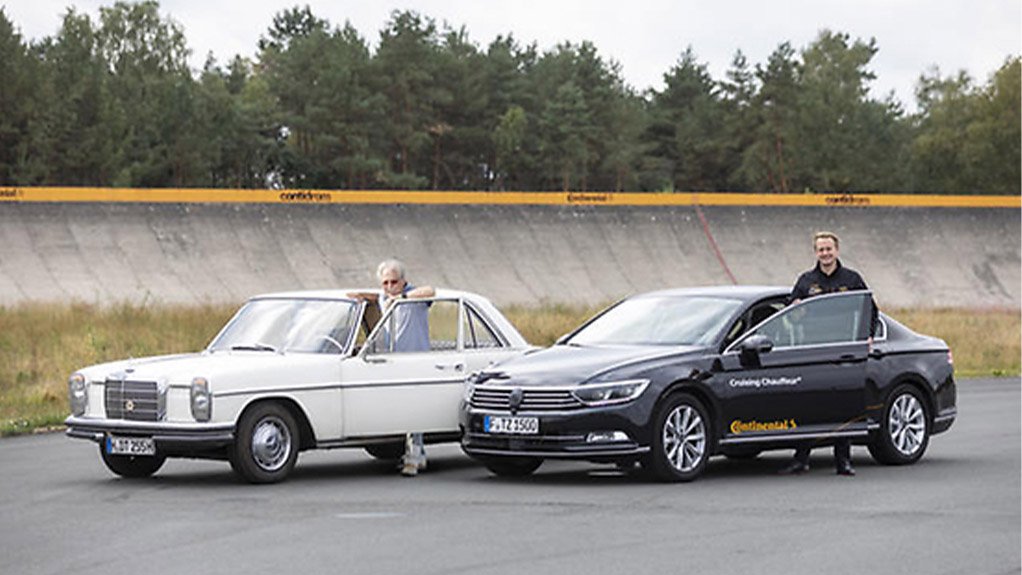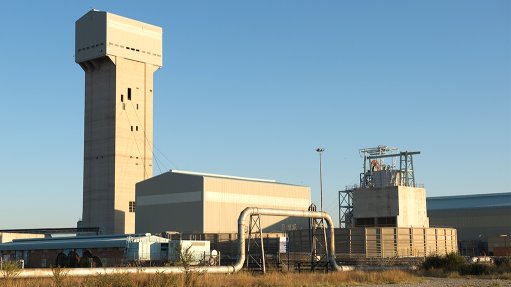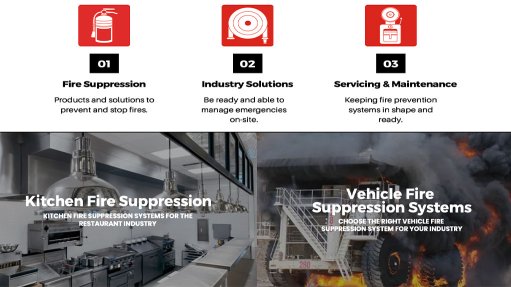Continental optimises tyre test with driverless test vehicle


DRIVERLESS NAVIGATION The driverless vehicle pilots the testing route with a GPS-supported satellite navigation system
Automotive tyre manufacturing company Continental commissioned the first driverless tyre test vehicle for an assortment of road surface types at its test site in Uvalde, Texas, in the US.
The aim of the endeavour was to make test results for the company’s passenger and light trucks more conclusive, as well as minimise the impact that the test procedure has on the results of the test. The new test vehicle is based on Continental’s automated cruising chauffeur, which was developed for use on freeways.
The test vehicle is controlled by a satellite-based navigation system. The fact that it is equipped with camera and radar sensors means that the car would be able to react instantaneously to people, animals or any other unpredicted objects on the track without a driver in the vehicle. A development team from Uvalde is contributing to Continental’s Vision Zero strategy for accident-free driving.
Continental executive board member and Tire Division head Nikolai Setzer highlights the fact that “in critical situations, the tyres’ level of technology is the deciding factor in whether a vehicle brakes in time. With tyre tests which use an automated vehicle, we achieve highly conclusive test results and thereby ensure the premium quality of our tyres”.
Testing Under Real Conditions
A significant challenge in tyre production is to perform efficient tests while tyres are in use. Newly developed rubber compounds and tyre models need to be tested with real life conditions and show how they perform on different surfaces such as gravel roads. A vast demand is placed on a driver for vehicle tests, as small deviations on the test track can have a significant impact on the quality and comparability of test results.
The team, led by Continental Tire Testing head Thomas Sych, has been working on the driverless tyre test since 2016 in Uvalde.
“We want to automate and thus standardise tyre tests to such an extent that we can identify even the smallest differences in tyres,” states Sych.
He emphasises how the automated vehicle allows the company to reproduce processes precisely, allowing all tyres to be tested in the same conditions. This ensures that differences in the test are caused by the tyres, and not by factors of the test procedure.
For this purpose, Continental engineers developed an electronically controlled car to automate tyre tests 50 years ago. At this time, the vehicle followed a wire glued to the track. This limited its use to solely asphalt test tracks, while today’s prototype can carefully navigate gravel roads without a driver.
In addition to the improved comparability of test results, the tyre test with automated vehicles reduces maintenance work of the test track, as the vehicle follows a route that only varies by a few centimetres each test. This means that the test track goes through less wear and tear, meaning that it would require less maintenance.
“Owing to close collaboration with colleagues from many different areas of Continental, we have made a lot of progress with our prototype for the tyre test. Our focus now is on further developing the necessary camera and radar systems for this special case of off-road routes, so that the vehicle can react appropriately when people, animals, or other vehicles unexpectedly appear on route,” explains Sych.
Sych highlights how their research, such as the Continental Mobility Studies, shows how trust is vital for mobility of the future, and that this responsibility is considered when developing this type of technology.
Continental develops technology and services for sustainable and connected mobility of people and their goods. The company produced sales of €44-billion in 2017 and employs over 244 000 people in 61 countries and markets.
Article Enquiry
Email Article
Save Article
Feedback
To advertise email advertising@creamermedia.co.za or click here
Announcements
What's On
Subscribe to improve your user experience...
Option 1 (equivalent of R125 a month):
Receive a weekly copy of Creamer Media's Engineering News & Mining Weekly magazine
(print copy for those in South Africa and e-magazine for those outside of South Africa)
Receive daily email newsletters
Access to full search results
Access archive of magazine back copies
Access to Projects in Progress
Access to ONE Research Report of your choice in PDF format
Option 2 (equivalent of R375 a month):
All benefits from Option 1
PLUS
Access to Creamer Media's Research Channel Africa for ALL Research Reports, in PDF format, on various industrial and mining sectors
including Electricity; Water; Energy Transition; Hydrogen; Roads, Rail and Ports; Coal; Gold; Platinum; Battery Metals; etc.
Already a subscriber?
Forgotten your password?
Receive weekly copy of Creamer Media's Engineering News & Mining Weekly magazine (print copy for those in South Africa and e-magazine for those outside of South Africa)
➕
Recieve daily email newsletters
➕
Access to full search results
➕
Access archive of magazine back copies
➕
Access to Projects in Progress
➕
Access to ONE Research Report of your choice in PDF format
RESEARCH CHANNEL AFRICA
R4500 (equivalent of R375 a month)
SUBSCRIBEAll benefits from Option 1
➕
Access to Creamer Media's Research Channel Africa for ALL Research Reports on various industrial and mining sectors, in PDF format, including on:
Electricity
➕
Water
➕
Energy Transition
➕
Hydrogen
➕
Roads, Rail and Ports
➕
Coal
➕
Gold
➕
Platinum
➕
Battery Metals
➕
etc.
Receive all benefits from Option 1 or Option 2 delivered to numerous people at your company
➕
Multiple User names and Passwords for simultaneous log-ins
➕
Intranet integration access to all in your organisation



















